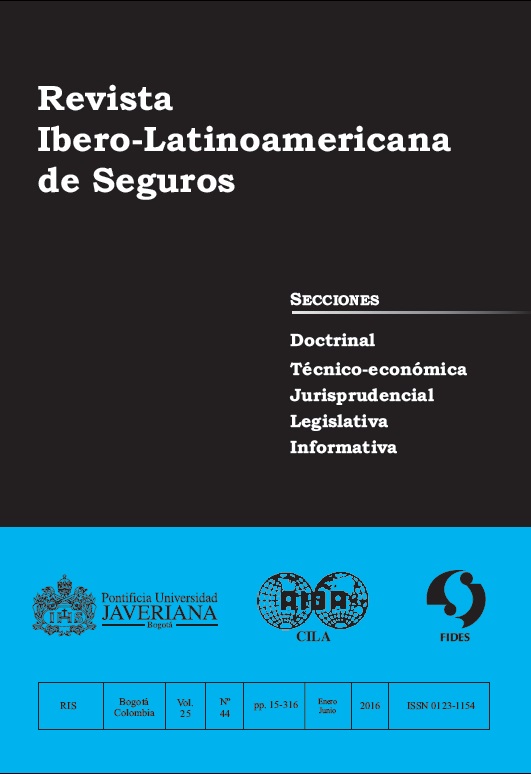Abstract
The insurance of the risk of disability in the Social Security System in Colombia, is in charge of the subsystems in pensions and occupational hazards. Those subsystems include the disability pension which is a benefit that aims to compensate such a risk.
The disability pension is assumed in the pensions system by the managers of pension funds (AFP) and in the system of occupational hazards by the managers of those risks (ARL), corresponding to the first to assume the payment of the mentioned provision to members who are disabled as a result of a common risk, while the latter corresponds to the payment of pensions that are generated by the happening of an occupational hazard.
Occasionally an affiliated of the system may present a percentage of loss of labor capacity from a common origin, and at the same time another percentage caused by work, each one of those situations taken individually may not allow the affiliated to obtain a disability pension, but adding one to another, they give the invalid condition and the right to obtain that pension.
Under the effects of the judgment C-425 in 2005 of the Constitutional Court, in cases such as the above, Colombian jurisprudence has well forced to an AFP or to an ARL to assume the payment of the totality of the disability pension, which may constitute an excess in the obligational burden that each of these entities has assumed under the respective assurance of the risk.
This journal is registered under a Creative Commons Attribution 4.0 International Public License. Thus, this work may be reproduced, distributed, and publicly shared in digital format, as long as the names of the authors and Pontificia Universidad Javeriana are acknowledged. Others are allowed to quote, adapt, transform, auto-archive, republish, and create based on this material, for any purpose (even commercial ones), provided the authorship is duly acknowledged, a link to the original work is provided, and it is specified if changes have been made. Pontificia Universidad Javeriana does not hold the rights of published works and the authors are solely responsible for the contents of their works; they keep the moral, intellectual, privacy, and publicity rights.
Approving the intervention of the work (review, copy-editing, translation, layout) and the following outreach, are granted through an use license and not through an assignment of rights. This means the journal and Pontificia Universidad Javeriana cannot be held responsible for any ethical malpractice by the authors. As a consequence of the protection granted by the use license, the journal is not required to publish recantations or modify information already published, unless the errata stems from the editorial management process. Publishing contents in this journal does not generate royalties for contributors.


